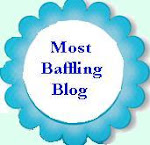hearing and vision, say and see what?
Last night I went to a seminar titled 'Lifestyle Choices for Healthy Aging' that was hosted at Concordia University of which I am an alumni.
There were two researchers who each individually presented the results of their ongoing research on how it relates to the topic, and then a moderator came in and the three of them sat down and had a discussion. Following that, there was a period where the audience could ask questions.
Nathalie's research was what effect hearing loss, and to a lesser extent vision loss, affect cognition in our older age. The evidence shows that hearing loss is a significant risk factor with respect to the development of dementia. The way it was explained was that with hearing loss, a person will interact socially less and less as the hearing ability reduces, and this lowering of social interaction is known as one of the key risk factors leading to dementia. She mentioned that there is no evidence to show that hearing aids will make a difference because the people who get hearing aids generally do other positive things that also lowers their risks and so to parcel out the specific impact that hearing aids have has not yet been done. It seems to me, though, that it is a logical link and so I will definitely keep this in mind for the future; if I ever find myself noticeably having trouble hearing people and what they say, I am to get my hearing checked. At one point during the discussion, Nathalie mentioned that another aspect of a lifestyle choice for healthy aging was to continue to have a Growth Mindset throughout the older years; not to resign oneself to 'this is how it is and how it will be for the rest of my life'.
Claudine's research was what effects vascular health have on aging. The risk factors that can lead to vascular disease are almost identical with the risk factors that Nathalie listed at the beginning of her presentation, the common things that aging related research talks about - diet, exercise, sleep, diabetes, obesity and a few others. She said that everyone has at least one risk factor working against them. She mentioned that through all of the known research that has been done, there is still not an understanding of what exactly exercise actually does to the brain; it is just known that there is a correlation between exercise and good cognition. She said that it seems that cardiovascular exercise, on its own, has the greatest and most profound effect on lowering the risk of vascular disease, but that, oddly, performing strength exercise has only a moderate effect, and combining strength and aerobic exercise doesn't have the same effect as the aerobic exercise done on its own. Claudine also mentioned that it didn't really matter what exercise people did, nor, that it is ever too late to begin, though, people who only start exercising later in life (60-70-80) will have a smaller positive impact compared to someone who started earlier (30-40). Finally, she mentioned that there is quite a big difference between men and women with respect to vascular disease and how it plays out in people, both respect to sex (our physiology) and gender (our cultural or social roles).
My summaries above account for both their presentation and what came out of the moderator questions. When the audience questions started, a large proportion of them were general age related questions that had hardly anything to do with the research topics these two people spent their time talking about; so they were ill-equipped to answer them, but did their best just the same.
After the session there was a cocktail hour for people to mull about and discuss what had just been delivered. I always have a hard time with this, not knowing anyone, but I did manage to accost this couple who seemed younger than me, and together the three of us were younger than many of the attendees. We chatted for perhaps eleven minutes, talking about the presentation, the researchers, our own reading of age related materials; there was a fairly good balance of both of them asking questions and me asking questions and providing answers too. I didn't get their names, but the woman of the relationship probably took about 60% of the conversation space with 20% each for the guy and I.
So, here is what I am already doing that I hope will help with aging healthy in my later years:
Exercising regularly
Intermittent fasting
Ensuring I get good quality and quantity of sleep
Eat healthy some of the time
Here is what more I need to do:
Eat healthy all of the time
Improve or expand my social interaction
Later on if my hearing or my vision begins to noticeably degrade, do not hesitate to do something about it.

No comments:
Post a Comment